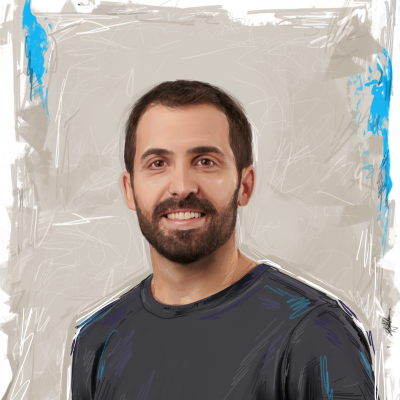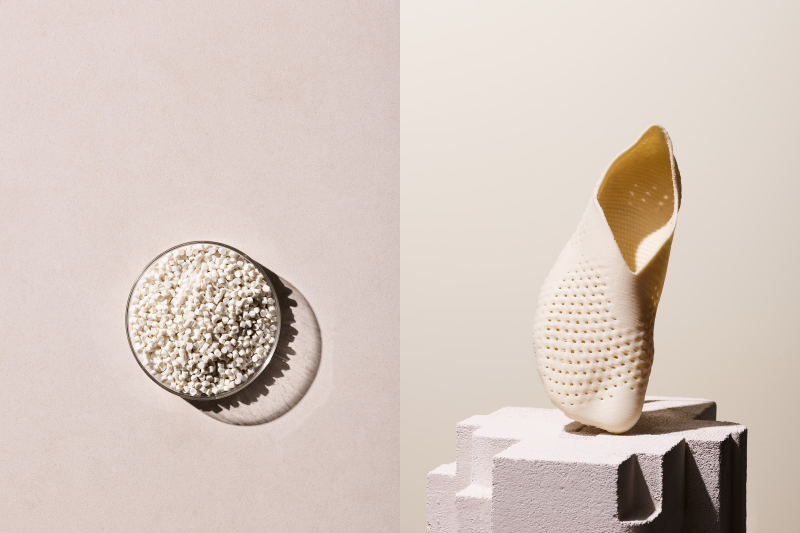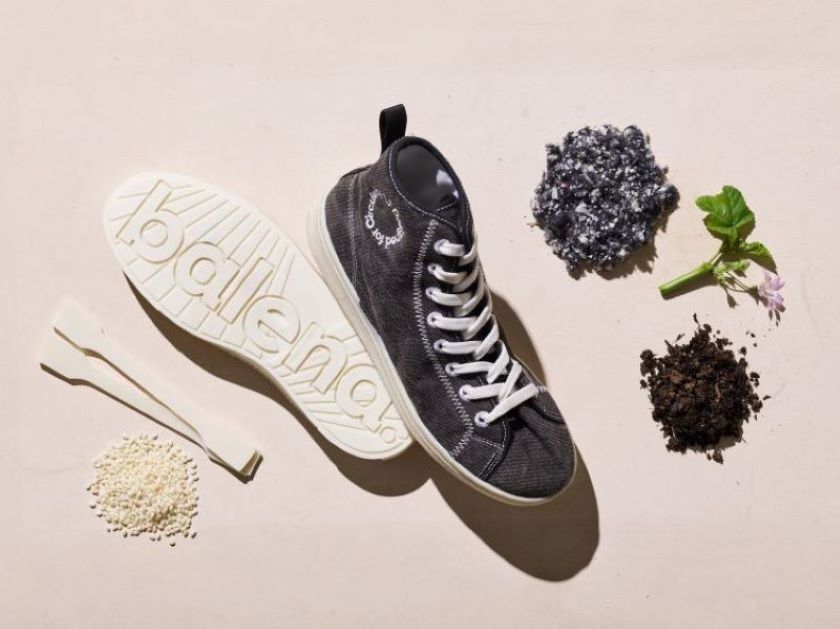Register to continue reading for free
David Roubach from Balena: sustainability is part of innovation and innovation is part of the success of a brand

We spoke to David Roubach, Founder and CEO of Balena, a materials science company that’s been making waves with its advanced biopolymer material BioCir. The company’s mission is to help create a fully circular model for consumer goods. Let’s find out more
David is a firm believer in the circular economy model, having first co-founded The Fridge, a not-for-profit charity focused on reducing food waste. “I really believed that if we were going to live on this earth for many, many years to come, and continue to consume and live as we are used to, the only way to do that was to live in a circular economy methodology”, he recalls.
He then went on to study Fashion and Sustainability at the University of Bocconi in Milan, where he noticed that “in the sustainability department, they were talking more and more about a circular economy”, but in the fashion department the sustainability talk didn’t get to the bottom of the issue of a “truly circular economy or circular solutions for the product”.
The question of how to implement a fully circular business model in the fashion industry was soon on his mind, but the answers would take some time to come. And with good reason.
Balena
“After my studies, I started looking for solutions to find out what existed, what didn’t, what needed to be better and basically why there weren’t more biodegradable and circular solutions in the fashion industry. I realised it was a material gap. If a fashion designer or product designer wanted to start using biodegradable materials in their products, they didn’t have materials that could offer the right performance”, he explained.David then met polymer engineer Yanir Shaked, and a four-year journey began to develop the material that would allow them to create fully circular products.

BioCir
When the proof of concept for BioCirflex, a fully compostable thermoplastic and scalable elastomer that could replace toxic fossil fuel-based materials in consumer goods, was achieved in 2022, Balena decided not to engage manufacturers immediately.“We decided to announce the product, to show a product made of our material, namely the fully compostable slides made of 100% of our material”, said David. “The idea was to do it ourselves – he continued – before moving to a collaboration with the brand, to explain the concept behind the material and use the marketing to show what could be done with the material”.
The marketing stunt to raise awareness paid off. “We sold a couple of hundred slides; it went super viral and intense in terms of media and exposure, and it did exactly what we wanted”, concluded the founder of Balena.
BioCycling
But addressing the materials gap wasn’t enough. If the goal was to create a fully circular model with no start or end, a second gap needed to be addressed: finding places to biodegrade materials at the end of their useful life.“We asked ourselves: where are these places? And we found dozens of composting facilities around the world that could become partners for end-of-life take-back. (...) So in this gap, we didn’t invent anything, we just connected the dots: we brought the industrial composters and the brands together; it’s an innovation, but it’s not a technological innovation. It’s creativity, ideas for solutions on how to close the circle”.
Third Gap?
When asked if other gaps needed to be tackled in order to establish a circular economy model in fashion, David was quick to respond. “I think price will always be an issue. Brands want to produce as cheaply as possible, and innovation is something that costs more. I think, in general, that we need to be bigger to reduce costs”.And perhaps education too, he points out. “I think there is a big confusion out there for consumers when you talk about eco and green, sustainable solutions that nobody thinks they know about yet. The truth is that everyone says it’s sustainable, it’s recyclable, and then you understand that it’s not really effective”.
Reaching Out
It takes time to develop new materials, and it’s not because it’s sustainable. “It takes a lot of time to learn and to maximize the material”, and Balena is working to speed up the process. “It’s our responsibility to make this process fast and to bring it as fast as we can to the manufacturers. It’s our job to offer the best performance we can so that they will be happy”.“I think we’re slowly growing”, asserts David, “we can at least say that something is moving, so that’s a good sign”. And the news bears this out. Balena's latest partners include British sneaker manufacturer Vivobarefoot, Portuguese sole manufacturer ForEver and 3D fashion designer Brigitte Kock.
In fact, the key may be to present sustainability as innovation. “Brands always want to be more innovative. Because it’s in their value proposition to be good and to be big. We believe that it’s not just sustainability: sustainability is part of innovation, and innovation is part of the success of a brand. So, if you link sustainability to innovation, they want to start implementing it”.
But make no mistake, it’s a process that takes perseverance and, in Balena’s case, there’s still a long way to go.
Future
“We have a lot of footwear projects to replace TPUs, and we want to take that market. From cushions to soles to a lot of things that have these materials, we want to replace them. However, “we have started to look at other industries in fashion and even outside of fashion, like automotive, where our material can provide a sustainable benefit to the product”.
The vision is clear: “I want Balena to be the biggest or the most important bioplastic manufacturer in the fashion industry so that more and more companies use the material to create circular products”.
Image Credits: balena.science




